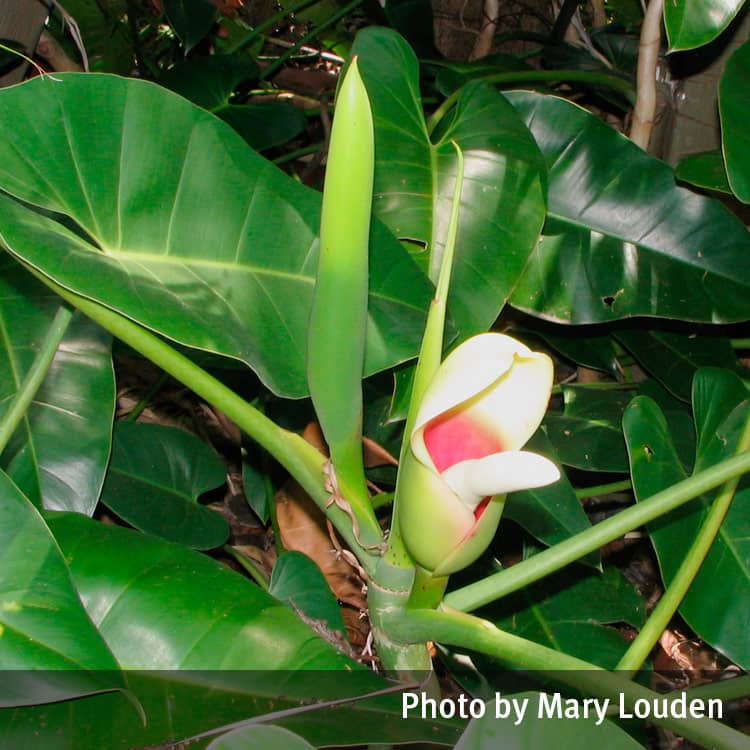Warning
Seek urgent medical attention if lips or tongue become swollen or if there is difficulty breathing or swallowing.
Description
An ornamental, often grown as a pot plant, these plants may or may not have a climbing habit.
If grown outside, they are often vines or climbers with thickened stems and numerous aerial roots.
Flowers are similar to other aroids in that they are small and numerous, crowded onto a central spike which is surrounded by a greenish coloured spathe. Leaves are shiny, sometimes variegated and often lobed or segmented.
Toxicity
Symptoms
All parts of the plant contain needle-like calcium oxalate crystals, which if chewed or eaten, can cause immediate pain or a burning sensation and swelling of the lips, mouth, tongue and throat. Swelling may cause copious salivation, difficulty in breathing, swallowing or speaking. Severe swelling or gastric irritation may become life-threatening.
The sap may cause contact dermatitis and eye irritation.
Images


Details
Common name: Philodendron
Botanical name: Philodendron species (most common species include Philodendron selloum, Philodendron bipinnatifidum, Philodendron ‘Anderson’s Red’, Philodendron ‘Xanadu’, Philodendron sanguineum, Philodendron domesticum)
Other common names: Heart-leaf philodendron, sweetheart vine
Family: Araceae
General description: An ornamental, often grown as a pot plant, these plants may or may not have a climbing habit. If grown outside, they are often vines or climbers with thickened stems and numerous aerial roots.
Flowers: Flowers are similar to other aroids in that they are small and numerous, crowded onto a central spike which is surrounded by a greenish coloured spathe.
Leaves: Leaves are shiny, sometimes variegated and often lobed or segmented.
Fruit/Berries: The fruit are berries, white to orange or red, clustered along the spike, similar in structure to other related species in this family.